Are you facing the challenge of moving on due to your office relocating? Writing a resignation letter in this scenario can be daunting, but it's an important step towards a positive transition. In this article, we'll explore a letter template that makes the process smoother and helps maintain professional relationships. Stick around to discover tips and examples that will guide you in crafting the perfect resignation letter!

Professional tone
A formal resignation letter should convey the necessary information clearly and respectfully. When addressing your employer, it is crucial to mention the reason for your departure, which is the office relocation, and your intention to maintain a positive relationship. First, indicate your position and department. Express gratitude for the opportunities and experiences gained. Specify your final working day, typically allowing for a notice period, which shows professionalism. Offer assistance in the transition process, demonstrating your commitment to the team until your departure. A closing note wishing the company continued success can enhance the overall tone of goodwill.
Clear resignation statement
A resignation due to office relocation signifies a formal decision to leave a position because the company is moving to a new location. Employees must communicate their intentions clearly and professionally. The relocation might occur to a different city, significantly affecting commuting options or personal circumstances. The resignation notice typically includes the intended last working day, often requiring a two-week notice period, depending on company policy. It's vital to express gratitude for the opportunities provided by the employer, acknowledging skills gained and relationships built during tenure. Such a letter usually concludes with well-wishes for the organization's future success, maintaining a positive relationship for potential networking or references later.
Reason for resignation
Relocating offices often disrupts daily routines, prompting employees to reassess their job circumstances. This process can lead to resignation, especially if the new location is significantly farther away from home. For instance, a shift from a central city office in Manhattan to a suburban location in Westchester County may add an hour to daily commutes, increasing travel time and reducing work-life balance. Personal commitments, such as family obligations or educational pursuits, can further influence this decision. Understanding these factors helps companies recognize employee needs and may lead to potential accommodations or remote work options instead of losing valuable talent.
Gratitude for opportunities
A recent office relocation, particularly in a major corporate environment like a multinational company, prompted my decision to resign. My time at XYZ Corporation has been filled with valuable opportunities for growth and development. During my tenure, I have appreciated the supportive work culture and experienced significant professional advancement, contributing to projects that exceeded quarterly targets. The friendships forged with colleagues across departments and the mentorship received from senior leadership have profoundly shaped my career trajectory. As I transition to new ventures in a different city, I carry forward these cherished experiences and express my sincere gratitude to the entire team for their unwavering support.
Transition plan or notice period
Transitioning to a new office location can create significant challenges for employees. Employees facing relocation may need to consider various factors, including logistics, such as the distance between the old location and the new office, which may affect commute times significantly. A critical aspect of the resignation process involves the notice period, typically spanning two weeks to one month, allowing for a smooth transition of responsibilities to other team members. During this time, departing employees often prepare transition plans, detailing ongoing projects, deadlines, and important contacts to ensure continuity and minimize disruptions. Additionally, communication with human resources is essential for understanding benefits and final paychecks during the resignation process.

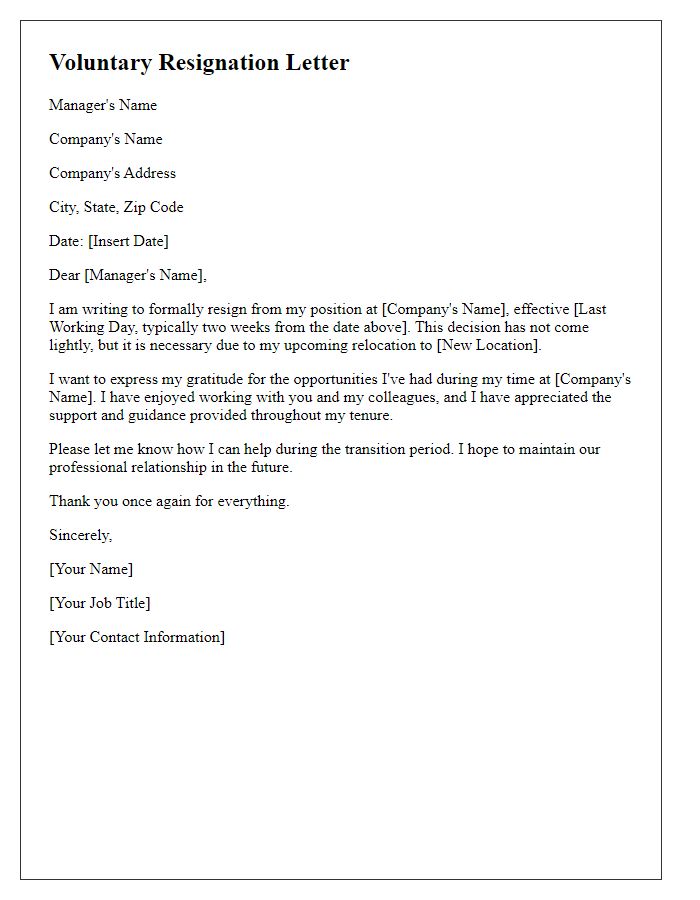
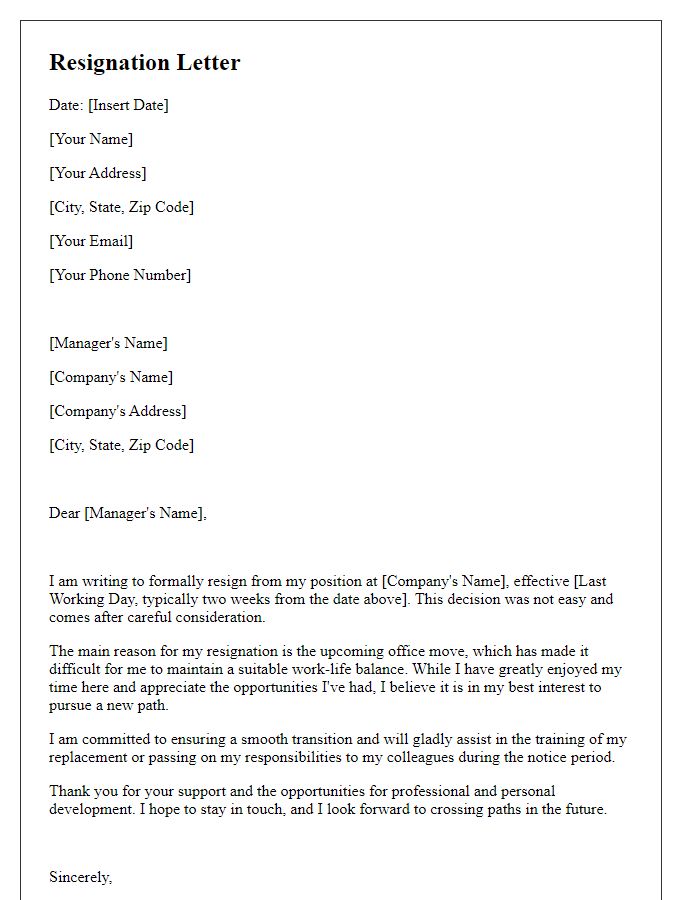
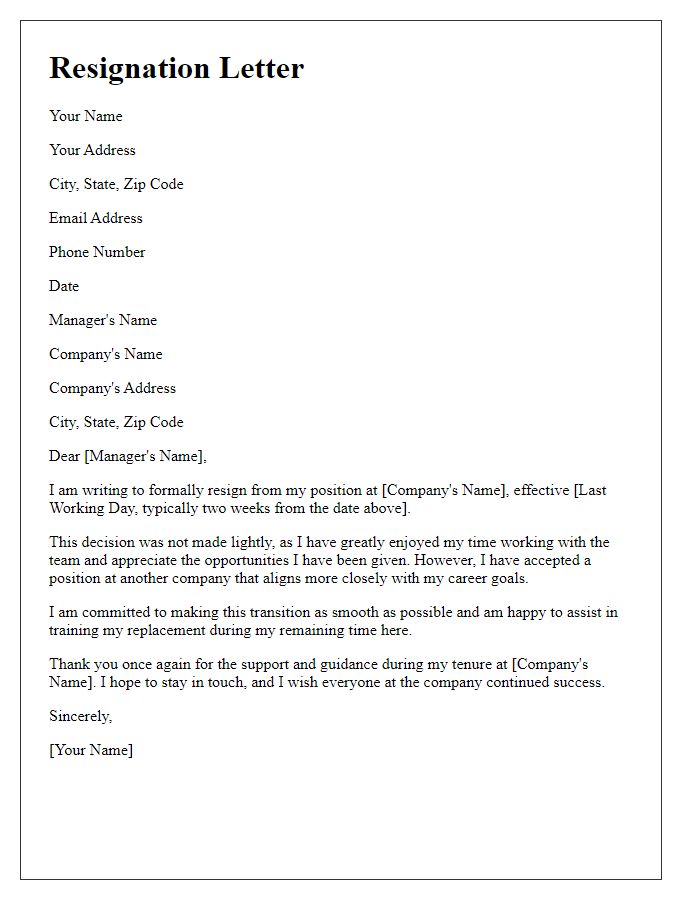
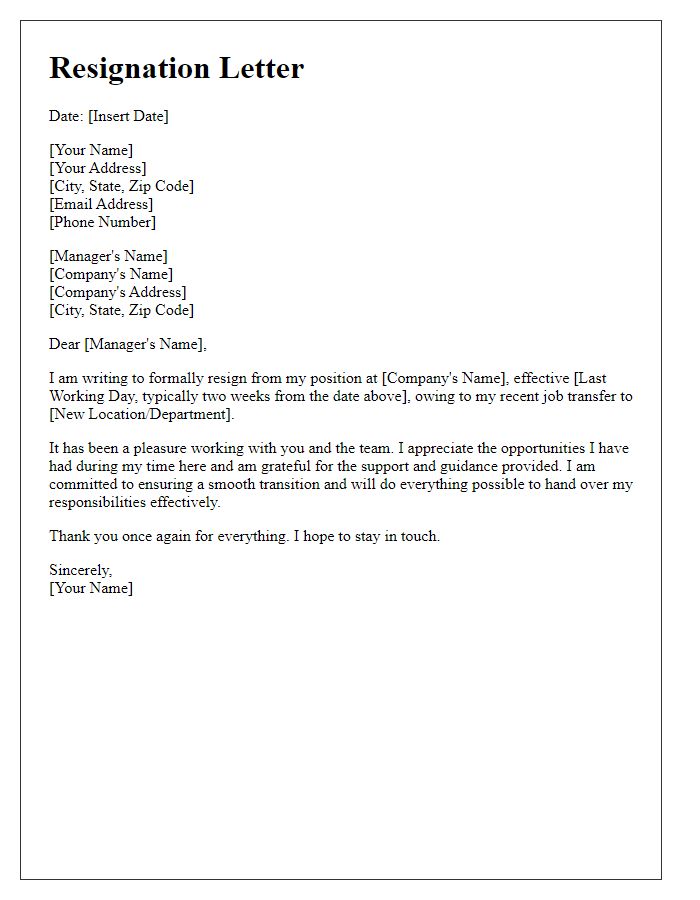
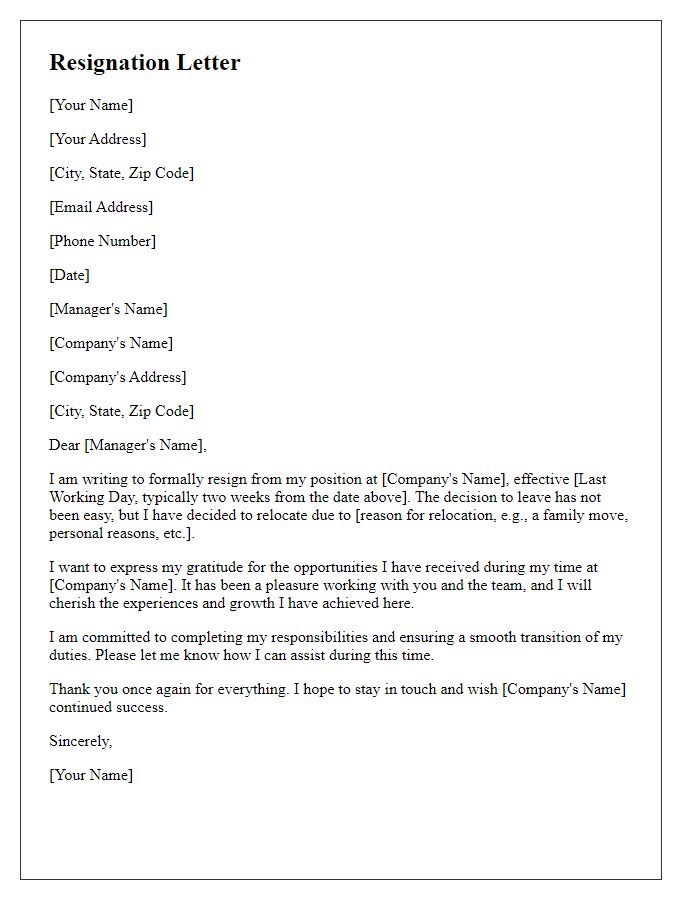
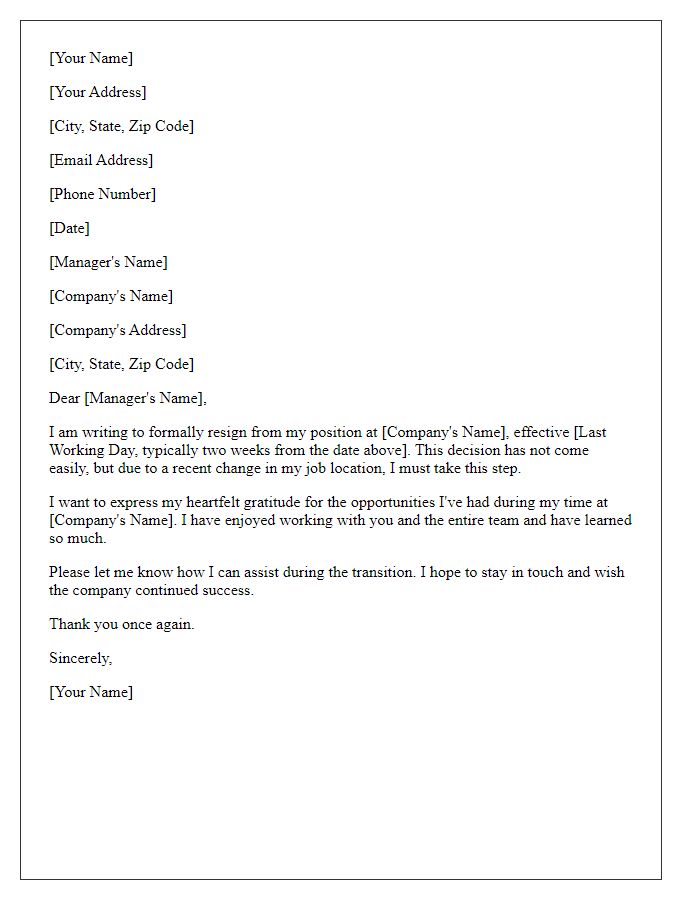
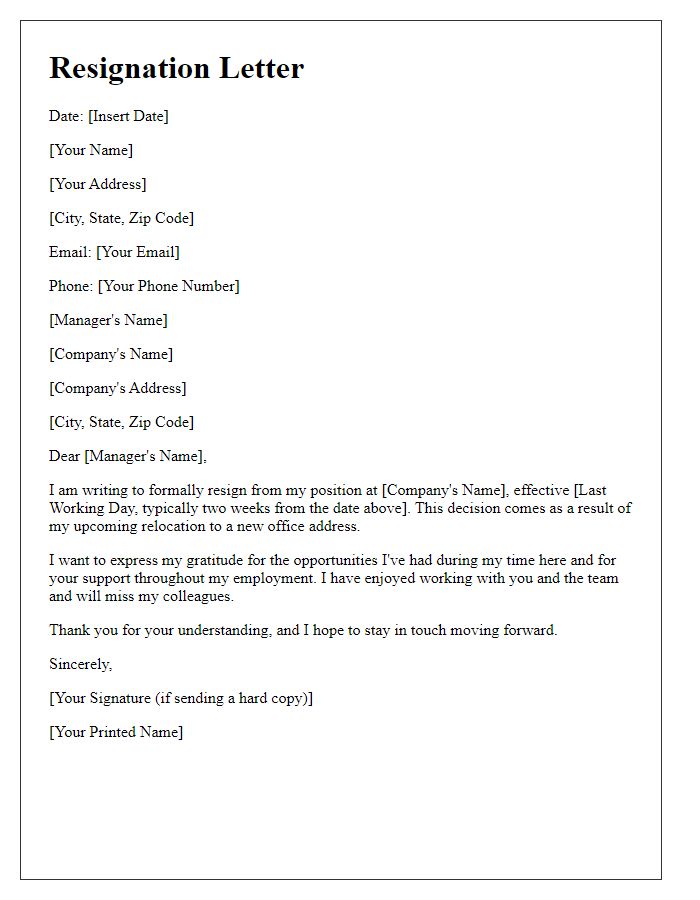
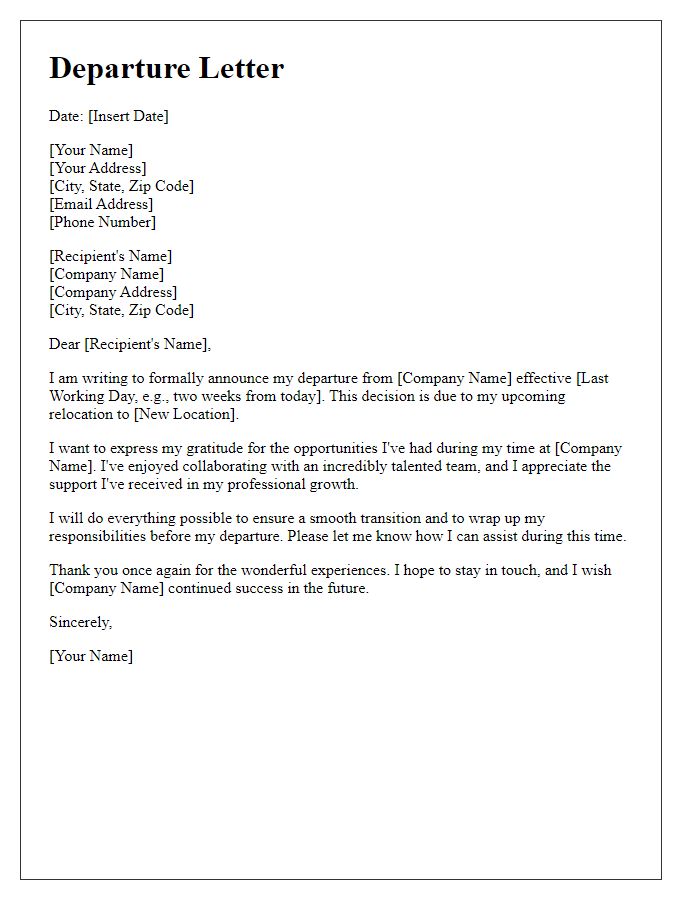
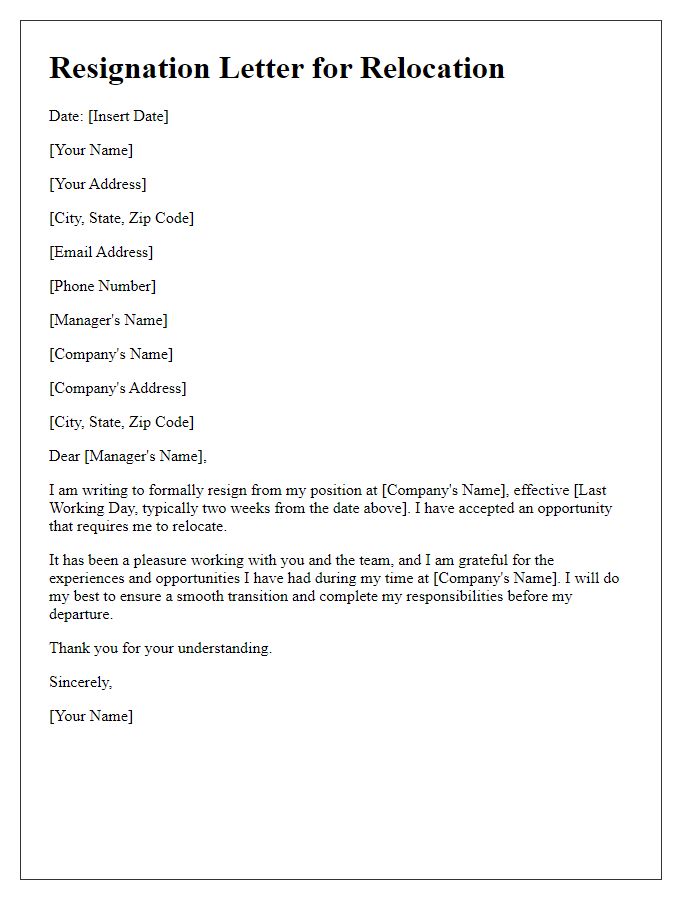
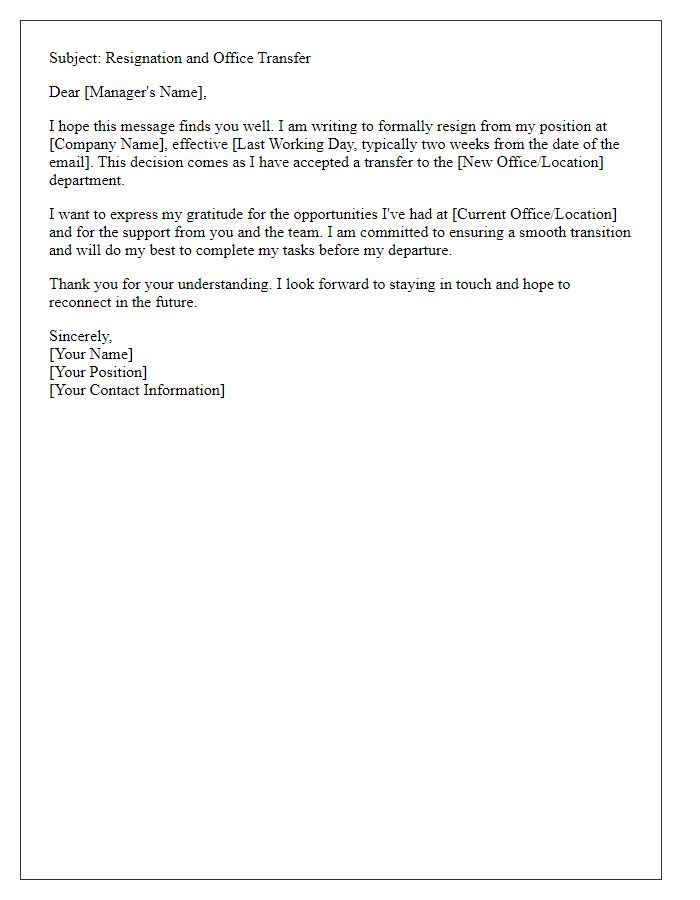


Comments